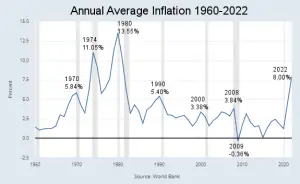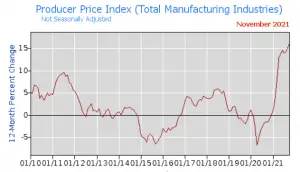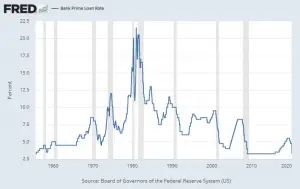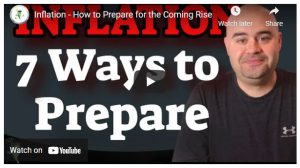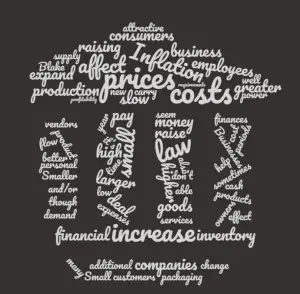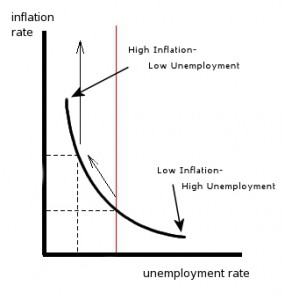Inflation is making everything more expensive, and insurance is no exception. As prices rise for goods and services, insurance companies have to adjust as well. They factor in a variety of elements, including the average cost per claim made and the rising costs involved in repairing cars or homes. When these costs go up, insurance companies must pass it on by raising the price of premiums. Understanding Insurance Inflation Insurance inflation means the cost of your car, home, health, or life insurance is going up. What’s driving these increases? For starters, healthcare expenses are rising, so health insurance gets more expensive. Natural disasters like floods and fires can also make home … [Read more...]
How Inflation Impacts Merchants
Just like the old joke, "How do you eat an elephant? ...one bite at a time", inflation is constantly "eating" away at your purchasing power. Some years your purchasing power might decline by 1%, and other years, it might decline by 5% or even 10%. As we can see from the chart above, back in 1980, purchasing power declined by an average of 13.55% over the whole year. But from April 1979 to April 1980, prices increased (and thus purchasing power declined) by a whopping 14.76%. And that was on top of 10.09% from April 1978 to April 1979. So, in just two years, from April 1978 to April 1980, prices increased significantly. How much? Well, due to compounding, you can't simply add 14.76% and … [Read more...]
How Businesses Cope With Inflation
With the Producer Price Index for manufacturing industries increasing by over 15% on a not seasonally adjusted annual basis for the last couple of months, businesses are facing rapidly increasing costs. To remain profitable, companies only have two options, either raise prices or cut costs. In the short run, larger corporations can postpone the inevitable by taking a 3rd option, i.e., “to squeeze margins to maintain volumes” (which is just a fancy way of saying “eat the increased costs”. Small businesses are generally in a weaker position to adjust themselves when inflation knocks at their doors. It is more difficult for Small and Mid-size Enterprises (SMEs) to cope with the situation … [Read more...]
How Can Inflation Affect Businesses?
Inflation can affect business in strange ways. It can be good for business in small doses, but it can also be disastrous if it devolves into hyperinflation. Hyperinflation is often described as massively increasing prices over a very short period of time, for example, in America during the Civil War. But even if inflation doesn't get that bad, the later stages of ordinary inflation such as we saw in the 1980s can still be devastating to businesses. Here are four ways that businesses are affected by inflation or hyperinflation, and what that might mean for their customers and other services they might invest in. #1 It Can Increase Sales In the short run, as the money supply increases, … [Read more...]
5 Ways Inflation Affects the Accounting Industry
Market fluctuations are an everyday element of the accountant’s life. They come and go, subject to the economics, markets, and policies of countries and governments. As an economy enters a period of inflation and sees the cost of everyday products rise, the impact can be felt not only by the individual consumer but also on the business balance sheet. That’s when the accounting industry comes into its own, offering experience and insight into a company’s reporting. Here are 5 ways inflation affects the accounting industry, and how that impacts business. 1. Preparation for Change Becomes a Priority Throughout history, periods of inflation and conversely deflation, have made their presence … [Read more...]
Managing Business During Periods of Inflation
When a currency's purchasing power declines, the average cost of goods and services rise, and the economy in question enters a period of inflation. This affects not only individual consumers and families but businesses as well. COVID-19 has rocked the global economy like nothing we've seen or experienced for a century. And the government's response has been to create massive quantities of liquidity. This means that a period of inflation could very well be on the horizon. If a business is to effectively circumvent this difficult economic period, it should be preparing for the challenges that lay ahead. Here are four things a business can do to prepare for the next inflationary … [Read more...]
Why Inflation Matters to Small Businesses
By: J. Blake Ledbetter, Conoscienti & Ledbetter Price inflation is the term that economists use to characterize an increase in the price of goods and services over time, which reduces the purchasing power of the currency. The bite of inflation often can be slow and painful. When inflation rates rise above 5% however they can be devastating to an economy and especially to small businesses. The rate of inflation is the increase in prices during a specified period. If inflation is at three percent annually, something that costs $100 this year will cost $103 next year. What it means to consumers and businesses is that money doesn't buy as much. Inflation can be especially painful … [Read more...]
What is the Phillips Curve?
The Nature of the Phillips Curve The Phillips Curve is an economic concept was developed by Alban William Phillips and shows an integral relationship between unemployment and inflation. Phillips began his quest by examining the economic data of unemployment rates and inflation in the United Kingdom. He tracked the data over business cycles, and found wages increased at a slow rate when unemployment was high, and faster when the unemployment rate dropped. Business cycles are basically economic activity over a lengthy period of time. Originally, business cycles were thought to be predictable, but they have since proven themselves to be irregular in the areas of duration, frequency and … [Read more...]
Could a Raise in Minimum Wage Trigger Inflation?
Here at Inflation Data we believe that all other things being equal the primary cause of inflation is an increase in the money supply, i.e. "too much money chasing too few goods." But raising the minimum wage may cause other distortions that will have an effect on the economy so that one simple stroke of a pen can still have a major impact. ~Tim McMahon, editor The Law of Unintended Consequences When the Government increases the minimum wage that employers need to pay to their employees, does it cause more problems later? The Government speaks of a raise as a good thing for the economy in order to boost sales (through more disposable income for the poor) and help low-income families pay … [Read more...]
Are Businesses Quietly Preparing for a Financial Apocalypse?
By Dan Steinhart, Casey Research US corporations are sitting on more cash than at any point since World War 2. That's without including banks. I'm only talking about non-financial corporations – the ones that sell goods and services and make the economy go. Those businesses hold $1.4 trillion. In absolute terms, that's the most ever. In relative terms, it's the most since World War II. As investors, we can infer quite a bit from corporations' inability (or unwillingness) to deploy their cash. For one, it indicates that business have assumed a very defensive stance. Cash, of course, is a buffer against uncertainty - the uncertainty that business slows for any reason. … [Read more...]


